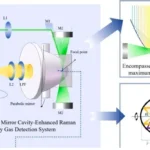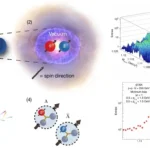Key Points:
- Intestinal stem cells surge and repair damage most effectively after breaking a fast.
- The regenerative boost during refeeding may increase the risk of precancerous polyps if cancer-causing mutations exist.
- Researchers plan to study whether these findings apply to humans and how to manage the “vulnerable state” during refeeding.
- While fasting has known health benefits, this study highlights the need for caution during refeeding, particularly concerning cancer risks.
A recent study in mice suggests that the benefits of fasting might be most significant when eating resumes rather than during the fast itself. Researchers discovered that stem cells in the intestines surged to repair damage only when the mice began eating after fasting. However, this regenerative boost came with a potential downside: a higher likelihood of developing precancerous polyps if a genetic mutation linked to cancer was present during the post-fasting period. The study published in Nature reveals that cellular regeneration isn’t without risks.
Fasting has long been associated with health benefits, such as delaying disease onset and extending lifespan in rodents. The biological mechanisms behind these benefits have been largely unclear. In 2018, Ömer Yilmaz, a stem-cell biologist at the Massachusetts Institute of Technology, and his team found that intestinal stem cells switch to burning fats instead of carbohydrates for energy during fasting. This metabolic shift enhances their ability to repair intestinal damage in mice.
Yilmaz’s latest research aimed to pinpoint when fasting leads to increased stem-cell activity. The study involved three groups of mice: one that fasted for 24 hours, another that fasted and then ate for 24 hours, and a control group that ate freely. The greatest increase in stem cell multiplication occurred in the mice that ate after fasting, driven by a surge in polyamines, which are crucial for cell growth.
However, this increased cellular activity during refeeding also elevated cancer risk. Mice with a cancer-causing gene activated during this period were more likely to develop tumors than those that didn’t fast. While these findings may raise concerns, some experts, like Valter Longo of the University of Southern California, caution against generalizing the results to humans. Longo suggests the study might help develop targeted therapies for conditions like Crohn’s disease.
Yilmaz and his team plan to conduct a clinical trial to determine whether these findings apply to humans. However, they stress that the refeeding period creates a “vulnerable state” that warrants caution.





